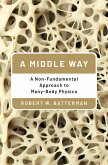The past few decades have seen an explosion of research on causal reasoning in philosophy, computer science, and statistics, as well as descriptive work in psychology. In
Causation with a Human Face, James Woodward integrates these lines of research and argues for an understanding of how each can inform the other: normative ideas can suggest interesting experiments, while descriptive results can suggest important normative concepts. Woodward's overall framework builds on the interventionist treatment of causation that he developed in
Making Things Happen. Normative ideas discussed include proposals about the role of invariant or stable relationships in successful causal reasoning and the notion of proportionality. He argues that these normative ideas are reflected in the causal judgments that people actually make as a descriptive matter. Woodward also discusses the common philosophical practice-particularly salient in philosophical accounts of causation--of appealing to "intuitions" or "judgments about cases" in support of philosophical theses. He explores how, properly understood, such appeals are not different in principle from appeals to results from empirical research, and demonstrates how they may serve as a useful source of information about causal cognition.
Dieser Download kann aus rechtlichen Gründen nur mit Rechnungsadresse in A, B, BG, CY, CZ, D, DK, EW, E, FIN, F, GR, HR, H, IRL, I, LT, L, LR, M, NL, PL, P, R, S, SLO, SK ausgeliefert werden.









